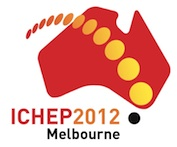Speaker
Prof.
Farid Ould-Saada
(Oslo University (NO))
Description
The International Particle Physics Outreach Group (IPPOG) has developed an educational activity that brings the excitement of cutting-edge particle physics research into the classroom.
Each year, since 2005, thousands of high school students in many countries all over the world come to nearby universities or research centres for one day in order to unravel the mysteries of particle physics and be “scientists for a day”. In 2012, 10000 students from 130 institutions in 31 countries took part in the popular event over 4 weeks.
Lectures from active scientists give insight on topics and methods of fundamental research on the building blocks of matter and the forces between them, enabling the students to perform measurements on real data from particle physics experiments themselves.
The last two years featured the use of fresh LHC data from the ALICE, ATLAS and CMS experiments.
Event display programs, software tools and analysis methods are quickly mastered by students who then measure various properties of some known particles, such as the weak gauge bosons W and Z and a number of hadrons (Jpsi, Upsilon, Lambda, K-short). The fractions of W+ and W- events are interpreted in terms of quark structure of the proton (not just the simple view of uud quarks). The concept of invariant mass is first used to identify and measure masses and widths of short-lived particles, before it is applied to look for new particles.
At the end of each day, with tools used in our international research collaborations, the participants join in a videoconference with CERN or Fermilab for discussion and combination of their results. The latter are then compared to recent results published by the experiments.
We will describe the methodology employed for the IPPOG International Masterclasses, summarise the measurements performed and report on the impact of the day on young students. We will show how you (the particle physicist) can become involved in this activity and develop your own initiatives based around the samples of LHC data and associated tools.
Primary author
Prof.
Farid Ould-Saada
(Oslo University (NO))




